Filter by

Empire, colonialism, and the human sciences: troubling encounters in the Amer…
For readers interested in the history of science, Indigenous studies, Latin American studies, and studies of empire and colonialism, this volume offers a revisionist history of research encounters in the human sciences in imperial and colonial contexts in the Americas and the Pacific. This title is also available as Open Access on Cambridge Core
- Edition
- -
- ISBN/ISSN
- 9781009398152
- Collation
- 388 p
- Series Title
- -
- Call Number
- 325.8 WAR e
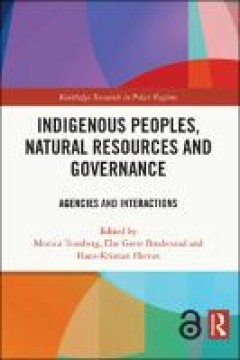
Indigenous peoples, natural resources and governance : agencies and interactions
This book offers multidisciplinary perspectives on the changing relationships between states, indigenous peoples and industries in the Arctic and beyond. It offers insights from Nordic countries, Canada, Australia, New Zealand and Russia to present different systems of resource governance and practices of managing industry-indigenous peoples’ relations in the mining industry, renewable resour…
- Edition
- -
- ISBN/ISSN
- 9781003131274
- Collation
- xiv, 216 p. : ill.
- Series Title
- -
- Call Number
- 333.2 TEN i
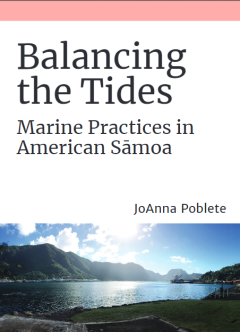
Balancing the tides : marine practices in American Sāmoa
"Balancing the Tides highlights the influence of marine practices and policies in the unincorporated territory of American Samoa on the local indigenous group, the American fishing industry, international seafood consumption, U.S. environmental programs, as well as global ecological and native concerns. Poblete explains how U.S. federal fishing programs in the post–World War II period encoura…
- Edition
- -
- ISBN/ISSN
- 9780824879686
- Collation
- 256p. ; ill.
- Series Title
- -
- Call Number
- 338.3727099613 JOA b
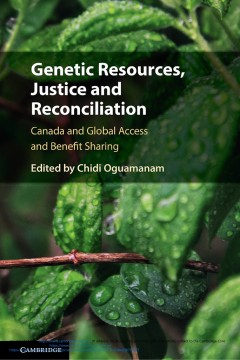
Genetic resources, justice and reconciliation : Canada and global access and …
When the oral history of a medicinal plant as a genetic resource is used to develop a blockbuster drug, how is the contribution of indigenous peoples recognized in research and commercialization? What other ethical, legal, and policy issues come into play? Is it accurate for countries to self-identify as users or providers of genetic resources? This edited collection, which focuses on Canada, i…
- Edition
- -
- ISBN/ISSN
- 9781108557122
- Collation
- xix, 279p. : ill.
- Series Title
- -
- Call Number
- 346.710469534 GEN g
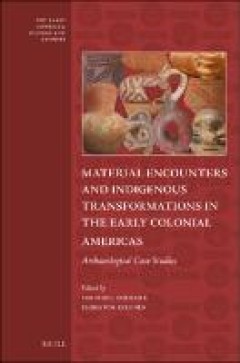
Material encounters and indigenous transformations in the early colonial Amer…
Material Encounters and Indigenous Transformations in the Early Colonial Americas brings together 15 archaeological case studies that offer new perspectives on colonial period interactions in the Caribbean and surrounding areas through a specific focus on material culture and indigenous agency. Readership: Scholars in archaeology and early history, graduate students, educated public with an int…
- Edition
- -
- ISBN/ISSN
- 9789004273689
- Collation
- -
- Series Title
- The Early Americas: History and Culture, 9
- Call Number
- 303.483 MAT m
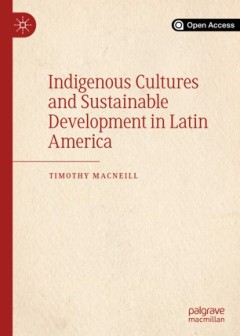
Indigenous cultures and sustainable development in Latin America
This open access book outlines development theory and practice overtime as well as critically interrogates the “cultural turn” in development policy in Latin American indigenous communities, specifically, in Guatemala, Honduras, Ecuador, and Bolivia. It becomes apparent that culturally sustainable development is both a new and old idea, which is simultaneously traditional and modern, and th…
- Edition
- -
- ISBN/ISSN
- 9783030370237
- Collation
- ix, 253p. : ill.
- Series Title
- -
- Call Number
- 306.098 MAC i
 Computer Science, Information & General Works
Computer Science, Information & General Works  Philosophy & Psychology
Philosophy & Psychology  Religion
Religion  Social Sciences
Social Sciences  Language
Language  Pure Science
Pure Science  Applied Sciences
Applied Sciences  Art & Recreation
Art & Recreation  Literature
Literature  History & Geography
History & Geography